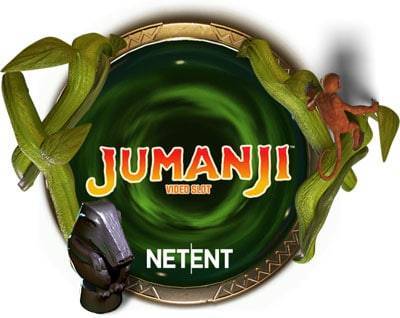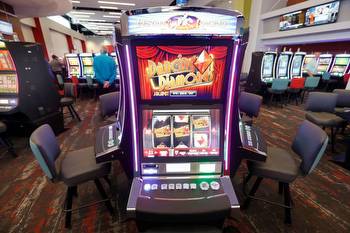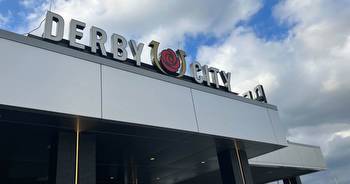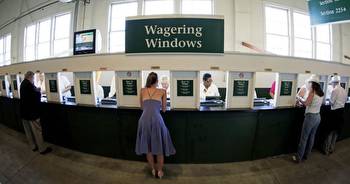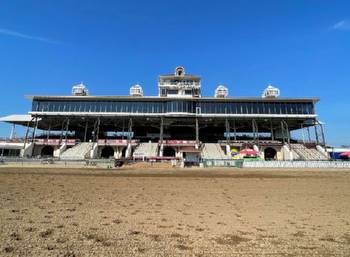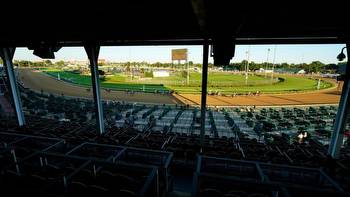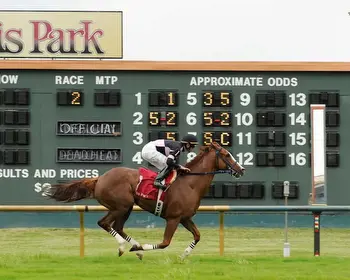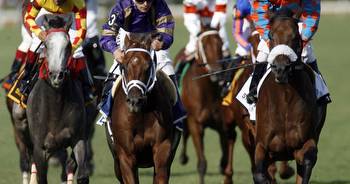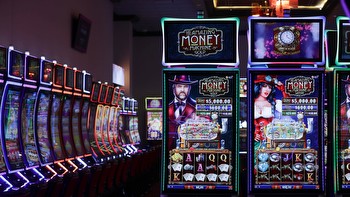Historical horse roulette? Churchill Downs subsidiary hints at expansion of gaming platform
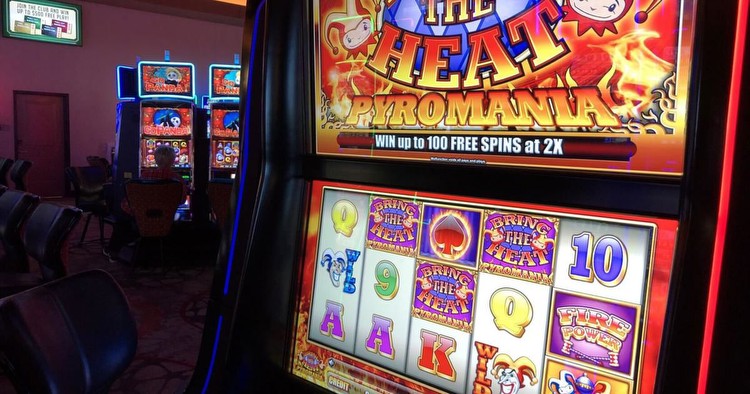
LOUISVILLE, Ky. (WDRB) -- Kentucky horse tracks have generated billions of dollars in the last decade from machines that look and play like slots.
So, if pari-mutuel horse racing can be dressed up as Las Vegas-style jackpots, why couldn’t it masquerade as other sorts of casino games, such as roulette?
Churchill Downs Inc.’s newest subsidiary, Florida-based Exacta Systems, is working with a gaming machine company on an electronic version of roulette that would be based on Exacta’s "historical horse racing" platform, the firm said in a news release last week.
The announcement stirred speculation that historical horse racing, which powers some 7,000 slots-like machines in Kentucky, could be tweaked to mimic other sorts of casino games. Besides Kentucky, historical horse racing is present in a handful of other states, such as Virginia, Wyoming and New Hampshire.
Adding table games would be "a massive opportunity" for Churchill Downs Inc. — one of the biggest players in historical horse racing — "to operate a ‘casino’ using the full suite of (historical horse racing)-integrated products" in Kentucky and Virginia, said Jordan Bender, a stock analyst at Citizens JMP Securities, in a research note for investment clients published Monday.
Casino gambling is illegal in Kentucky, but the slots-style machines at venues like Derby City Gaming in Louisville are based on the notion that they’re actually offering pari-mutuel horse betting. Kentucky lawmakers finally codified that in 2021 when the industry’s legality was in peril.
The gaming has grown exponentially in Kentucky, with players injecting more than $8 billion into the machines in the fiscal year ended June 30.
For its part, Churchill Downs said it has no immediate plans to bring roulette or other casino games to its Kentucky historical racing venues.
"Advanced authorization is required by (Kentucky Horse Racing Commission) for (historical horse racing) electronic table games but the announcement of the technology is too preliminary for any real consideration yet in terms of possibly integrating it in Kentucky," Churchill Downs spokeswoman Tonya Abeln said in a statement.
The Kentucky Horse Racing Commission, which regulates the historical horse racing industry, said in a written statement that it has authority to approve new games "only after a review and testing of the games and related components are completed."
"The KHRC would need to carefully review submissions by licensed vendors for approval of any specific game and related components," said commission spokeswoman Kristin Voskuhl.
But Jonathan Rabinowitz, a Lexington lawyer who chairs the racing commission, was more definitive when asked following a commission meeting Tuesday if the body might consider authorizing table games.
"I will tell you right now, no," Rabinowitz said, without elaborating.
Neither Exacta Systems nor Interblock, the electronic game-maker working with Exacta on the roulette game, responded to requests for comment.
The companies hope to "further expand the (historical horse racing) sector by the end of this year," Interblock CEO John Connelly said in the news release.
As of Tuesday, Exacta Systems is owned by Churchill Downs, which paid $250 million for the firm.
The acquisition is part of Churchill Downs’ long-term bet on growth in historical horse racing.
"Exacta is the system to which all the (historical racing) machines in a facility or (in) multiple facilities connect to each other," Churchill Downs CEO Bill Carstanjen told a Louisville audience in May. "It is a piece of software."
Carstanjen said his company and others in the industry have gotten better over the years at providing historical racing games that mimic "Class III" games — the terminology for slots and other casino games.
"It gets more competitive every day because more manufacturers are willing to spend the time to work with us or others to create a (historical racing machine) game that is similar to their Class III title," he told the Louisville audience earlier this year.
He added, "While you do your best to approximate a Class III game, sometimes it can be hard to achieve exactly."
Exacta, meanwhile, has boasted about the wide application of its historical racing software, saying it "supports multiple game vendors and virtually unlimited math modeling capabilities on a single system enabling Exacta to deliver a diverse gaming library."
If roulette or other casino games were to be introduced in Kentucky, one big question is whether lawmakers’ approval would be needed to authorize it.
The Republican caucus, which dominates both chambers of the legislature, was deeply divided in 2021 over legalizing historical horse racing, even though thousands of the slots-like games were already present in the state.
Bill Lear, a Lexington attorney with equine expertise and trustee of Keeneland Association, was emphatic that games such as roulette would not be legal under Kentucky’s current regulations for historical horse racing, meaning only lawmakers could authorize an expansion of the platform.
"The legislature can write whatever they want to write," Lear said. "... So, there is a legal avenue. But do I believe it to be likely in the foreseeable future? No."
Senate Majority Floor Leader Damon Thayer, the No. 2-ranking lawmaker in the body, said on social media after initial publication of this story that roulette and other casino games "are illegal and not covered under the statute" that authorizes historical horse racing in Kentucky.
"There is little to no appetite right now for more gaming bills," Thayer said on X, the platform formerly known as Twitter.
